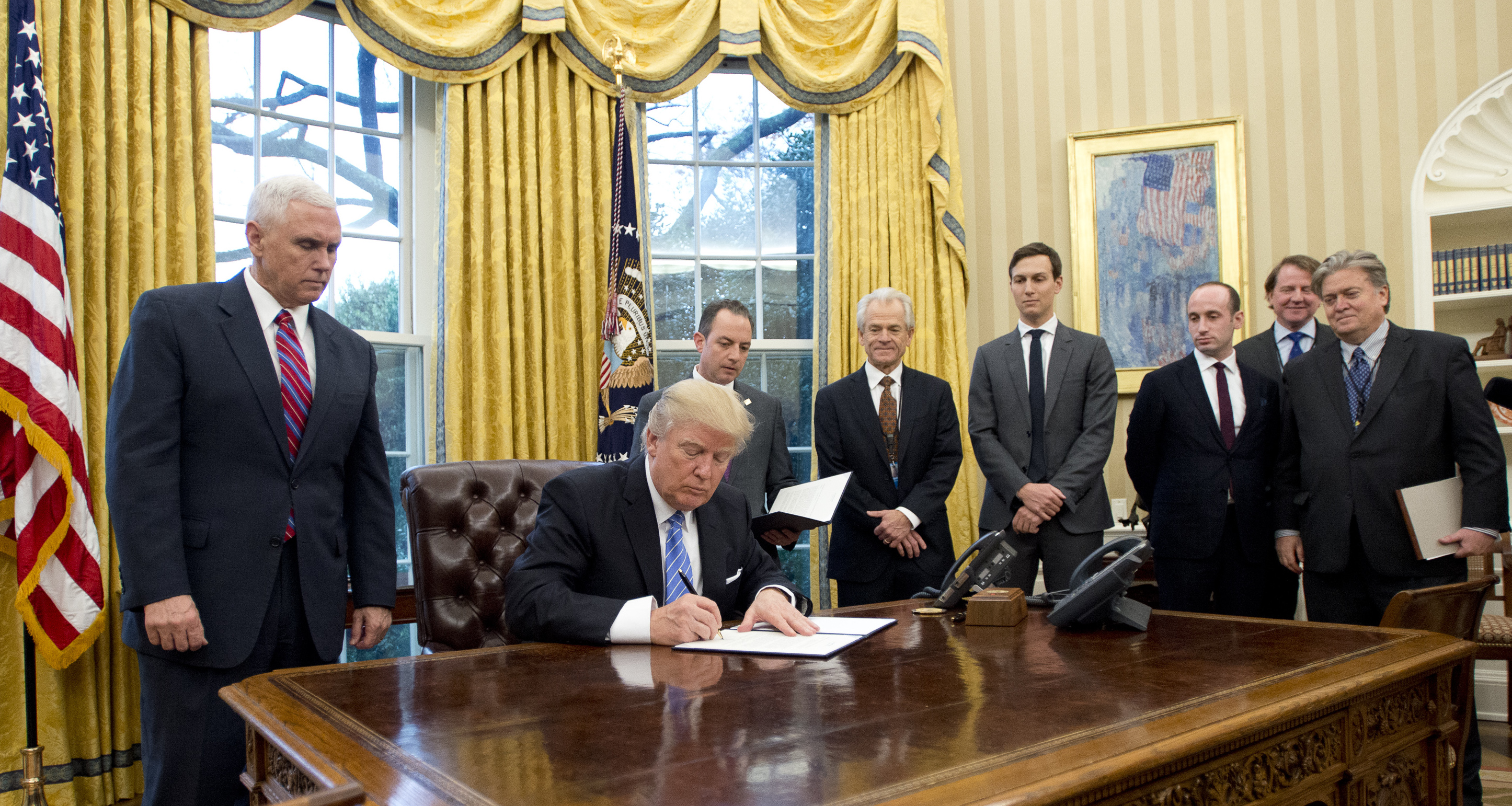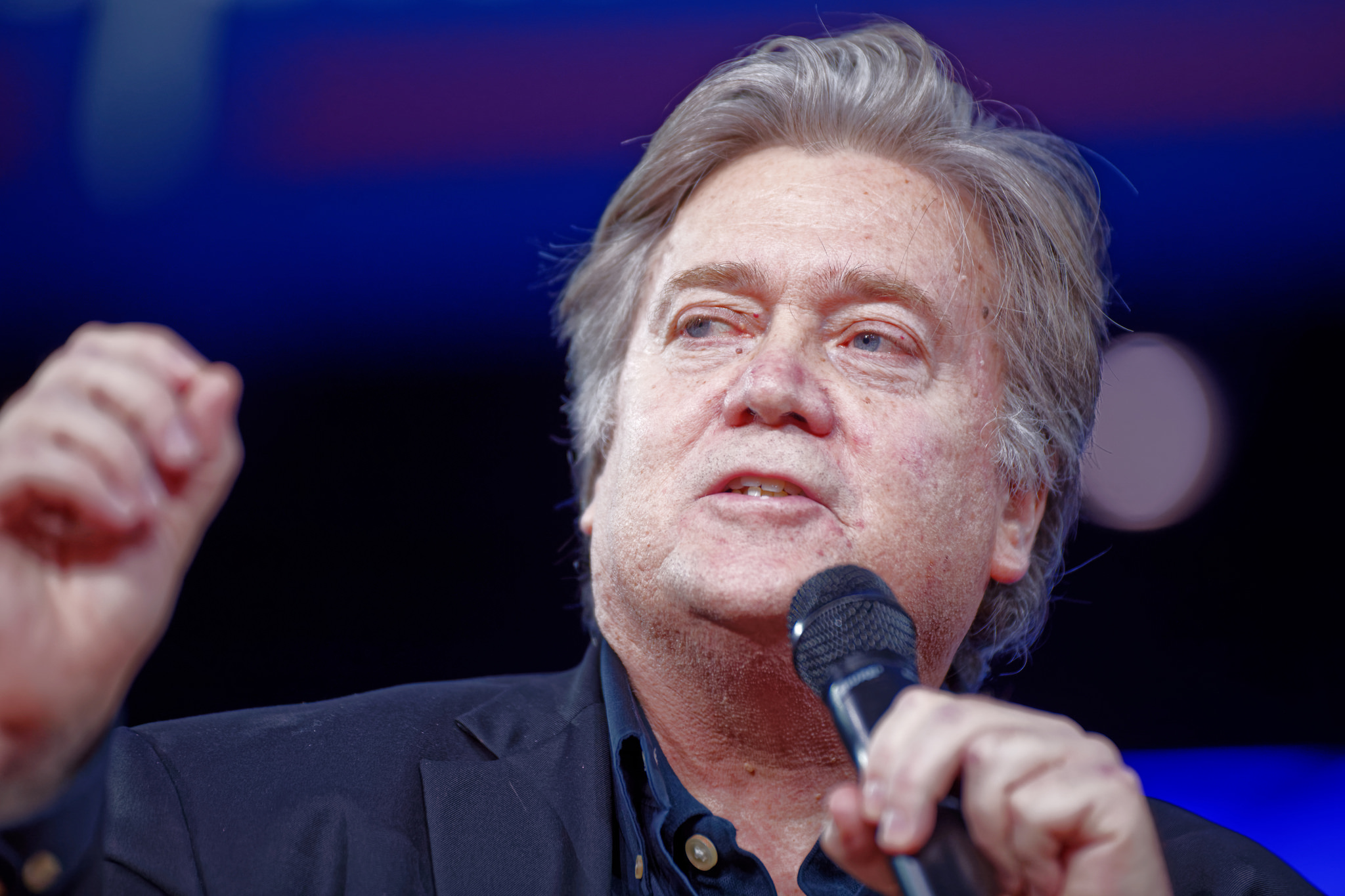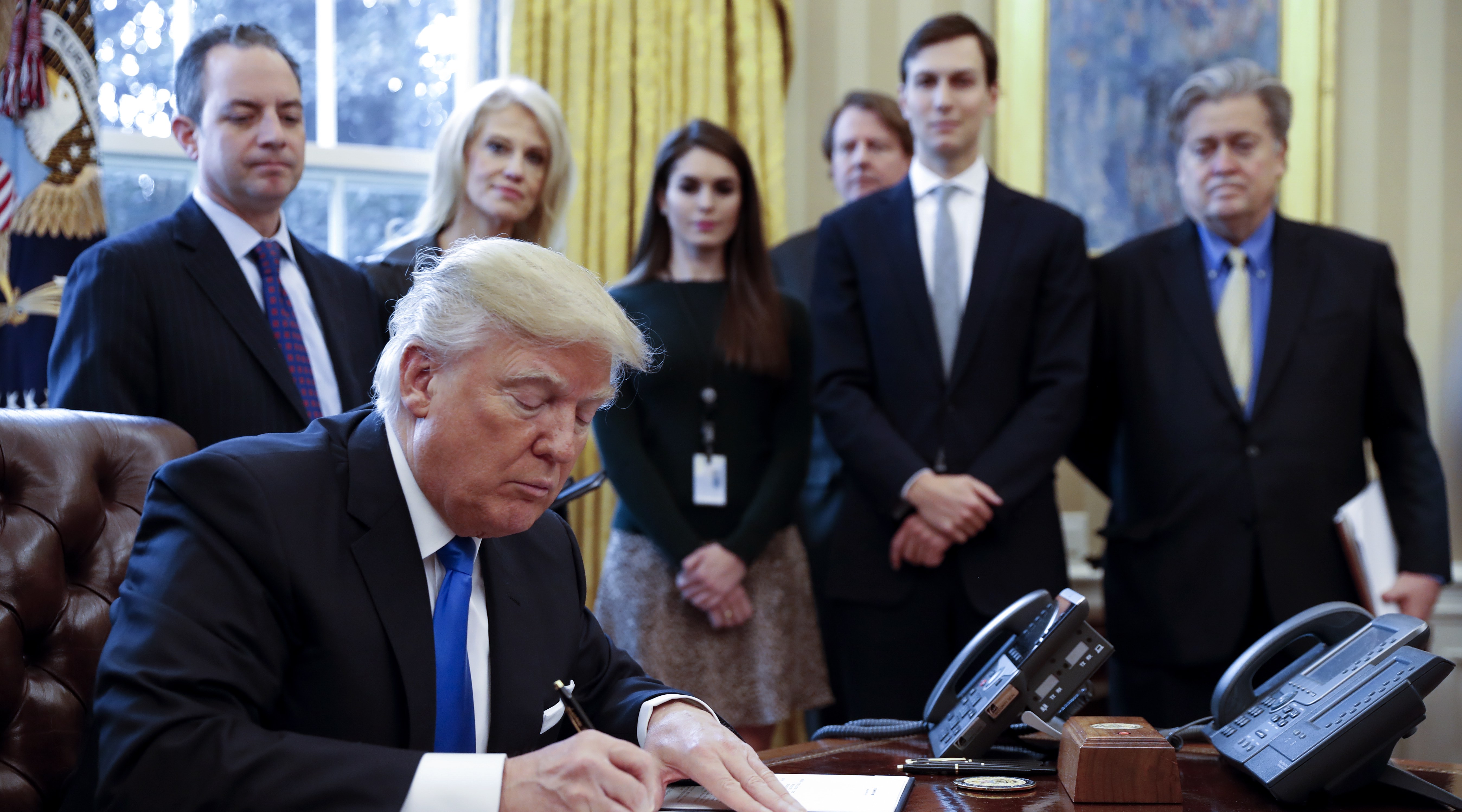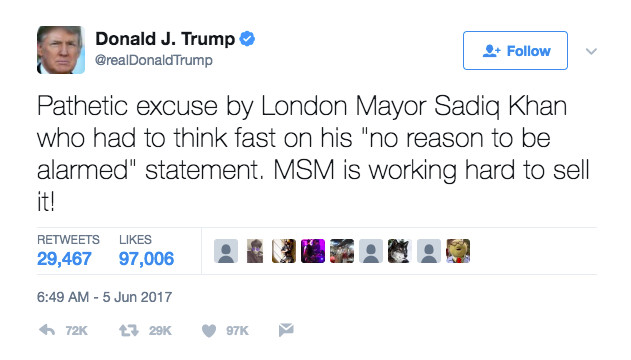
Environment
Trump’s political climate

As the pressure on President Donald Trump increases with a second US appeals court ruling against his travel ban, it’s the internal rifts between the alt-right and alt-lite factions within his administration that could create seismic friction in the future
Published 13 June 2017
When Donald Trump began his political campaign, he found support in an emergent field of discontents: particularly those who felt the Republican Party had moved too far towards pro-immigration and interventionist policies. These groups would become known as the “alt-right” and the “alt-lite”.
They have always been his natural constituency. To them, his comments on immigration and his anti-Muslim stance were a breath of fresh air. His tweets and unscripted comments, too, were seen as antidotes to their peeves and paranoia: they celebrated as he rallied against the “alternative facts” of the mainstream media, the rise of political correctness, and the pervasiveness of “social justice warriors” and feminists in society.

For the first time, these formerly latent political groups saw a viable candidate. And Steve Bannon, the head of the far-right Breitbart news website, which had styled itself as the go-to source of alt-right and alt-lite news, became so enamoured with Mr Trump’s message that he joined and orchestrated his electoral campaign, and secured the position of chief strategist when Trump won.
But now, Bannon is experiencing Trump’s fickle and capricious nature: the idea that Donald Trump’s electoral “success” and policies were not his own has made him resentful.
Moreover, Trump adores his family: his beloved daughter, Ivanka and her husband Jared Kushner now occupy senior advisory positions within the Administration. Their views align with those of a “New York Republican”, and their advice dramatically conflicts with Bannon’s.
This has created a fissure in the White House. Most of Trump’s actions follow Steve Bannon’s game-plan closely, which plays to his base; yet when Trump listens to Kushner and his daughter, he alienates them.

Environment
Trump’s political climate
When many in the media (including Breitbart) refer to Trump’s primary supporters, they’re called the “alt-right”. But the reality is that two interrelated groups constitute Trump’s base: the alt-right, and the less extreme, alt-lite.
This distinction is important. The term “alt-right” was coined by Richard Spencer, one of the leaders of the white-nationalist and supremacist movement in the US. Spencer, like other members of the alt-right (such as Jared Taylor), believe that America is and should always be a white country, and non-white ethnicities either have no place, or a significantly limited or subservient, place in America.
Aside from their more libertarian bent, the alt-lite differs from the alt-right in this key area: they are okay with non-white cultures, but only so long as they recognise that “the west is the best”, and fully assimilate to white-American values.
This creates a natural friction. Many in the alt-lite, such as Gavin McInnes, are regarded by the alt-right as a “cuckservatives” (this term, along with “cuck” is used often – they share a hyper-masculinity that lends itself to such pejoratives). That Mr McInnes married an indigenous American, and ostensibly rejects the “Nazi” presence in the group he founded (known as the Proud Boys) put him at odds with the more extreme Trump base.
And other leaders of the alt-lite are resented along similarly bigoted lines. Examples of hate or disdain amongst the alt-right include Milo Yiannopoulos being gay, Mike Cernovich (a prominent alt-lite blogger) being married to a non-white woman, or Ben Shapiro (former editor at large for Breitbart) being Jewish.

Yet, in spite of these apparently irreconcilable differences, the alt-right and alt-lite maintain an uneasy alliance, and have united in a shared appreciation of Trump and Steve Bannon, and a shared hatred of Jared Kushner.
As a result, Trump’s failures are largely elided by the alt-right and alt-lite, but when there is a begrudging acceptance that Trump may not be living up to their expectations, the blame usually lies with Jared Kushner. His being Jewish, at least for the alt-right, compounds the problem.
Ideologically, Trump is firmly in the Bannon camp. His tweets and statements indicate this strongly: when a terror attack occurs, he criticises gun control (particularly appealing to the alt-lite); he disparages climate scientists and efforts to combat anthropogenic climate change; he personally attacks individuals; and he has taken many anti-Muslim stances. These views align closely with the views of Breitbart readers, with which Steve Bannon maintains close contact (much to the chagrin of the Ethics Office).
Yet, as the media attention on Bannon’s influence grows, and the President’s own popularity continues to fall, his daughter Ivanka and son-in-law have managed to attain some influence.
As a result, when Syria was implicated in a chemical weapons strike against civilians, Trump responded by launching 59 cruise missiles against a Syrian airbase.
The attack was a restrained response to an egregious act, but Bannon’s supporters were forceful in their condemnation of the President. To them, Kushner (along with Ivanka and the National Security Advisor, H.R. McMaster) have led Donald Trump astray. They believe there was no chemical strike by the Syrian President Bashar al-Assad, instead referring to it as a “false flag”, and yet another example of “fake news”. Rather than a war criminal, they regard Assad (and other dictators) to be an ally against Islamist forces.
The Kushner camp drew further ire when Trump visited Saudi Arabia and Israel as part of his first overseas trip as President. Trump’s base again lamented the move, and blamed Kushner.
But, try as Kushner and company might, Trump’s instincts more fundamentally align with Bannon’s, and while the Syria strike and visits to Saudi Arabia and Israel tested the beliefs of the alt-right and alt-lite, his tweets confirm and reward their faith.

They were won back, for example, by Trump’s unprecedented (from a Presidential standpoint) attacks on the Mayor of London Sadiq Khan, along with a tweet about gun control, following the recent terror attacks in London.
Trump swings like a pendulum between the Bannon and Kushner camps: the frequency of news from the White House ensures that when he is being critised by his base one day, he will have won them back the next.
Much of Trump’s unpopularity results from his ideological affiliation with Bannon, an anathema to the majority of Americans. As a result, perhaps, Bannon’s influence is clearly on the wane, and Trump simply cannot abide the recognition Bannon has gained as the “brains” of the administration.

Politics & Society
Trump + Twitter: Unfettered honesty or unchecked vitriol?
Out of this frustration, the President occasionally pivots to the more moderate voices of his daughter, son-in-law, and National Security Advisor. And it may be that from this same frustration that Trump eventually forces Bannon’s retirement.
Yet, while Bannon may have helped in the articulation and projection of his messages, the ideology that underpins it comes naturally to the President – he does not need Bannon in that sense. Against all hopes of the more moderate Republicans, and those of his immediate family, Trump’s ideology is fundamentally aligned with the alt-right and alt-lite.
With or without Bannon in the White House, his instincts will not change. Donald Trump’s key advisor is Donald Trump.
Banner image: Getty Images